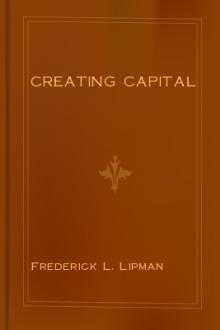The Man-Eaters of Tsavo, J. H. Patterson [red scrolls of magic TXT] 📗

- Author: J. H. Patterson
- Performer: -
Book online «The Man-Eaters of Tsavo, J. H. Patterson [red scrolls of magic TXT] 📗». Author J. H. Patterson
It was almost dark when the skinning process was finished, so without delay we started on our way back to camp, which was about seven miles off. The lioness I thought I should leave to be skinned the next day; but the men I sent out to do the job on the morrow were unable to find any trace of her — they probably missed the place where she lay, for I am sure that I killed her. It was a good two hours after night had fallen before we got anywhere near the railway, and the last few miles I was obliged to do by the guidance of the stars. Tramping over the plain on a pitch-dark night, with lions and rhino all about, was by no means pleasant work and I heartily wished myself and my men safely back in camp. Indeed, I was beginning to think that I must have lost my bearings and was getting anxious about it, when to my relief I heard a rifle shot about half a mile ahead of us.
I guessed at once that it was fired by my good friend Spooner in order to guide me, so I gave a reply signal; and on getting to the top of the next rise, I saw the plain in front of me all twinkling with lights. When he found that I had not returned by nightfall, Spooner had become nervous about me, and fearing that I had met with some mishap, had come out with a number of the workmen in camp to search for me in the direction I had taken in the afternoon. He was delighted to find me safe and sound and with a lion’s skin as a trophy, while I was equally glad to have his escort and company back to camp, which was still over a mile away.
When we had settled down comfortably to dinner that night, I fired Spooner’s sporting ardour by telling him of the fine pair of lions who had watched us skinning their companion, and we agreed at once to go out next day and try to bag them both. Spooner and I had often had many friendly arguments in regard to the comparative courage of the lion and the tiger, he holding the view that “Stripes” was the more formidable foe, while I, though admitting to the full-the courage of the tiger, maintained from lively personal experience that the lion when once roused was unequalled for pluck and daring, and was in fact the most dangerous enemy one could meet with. He may at times slink off and not show fight; but get him in the mood, or wound him, and only his death or yours will end the fray —
that, at least, was my experience of East African lions. I think that Spooner has now come round to my opinion, his conversion taking place the next day in a very melancholy manner.
BHOOTA’S LAST SHIKAR
Long after I had retired to rest that night I lay awake listening to roar answering roar in every direction round our camp, and realised that we were indeed in the midst of a favourite haunt of the king of beasts. It is one thing to hear a lion in captivity, when one knows he is safe behind iron bars; but quite another to listen to him when he is ramping around in the vicinity of one’s fragile tent, which with a single blow he could tear to pieces. Still, all this roaring was of good omen for the next day’s sport.
According to our overnight arrangement, we were up betimes in the morning, but as there was a great deal of work to be done before we could get away, it was quite midday before we made ready to start. I ought to mention before going further that as a rule Spooner declined my company on shooting trips, as he was convinced that I should get “scuppered” sooner or later if I persisted in going after lions with a “popgun,” as he contemptuously termed my .303. Indeed, this was rather a bone of contention between us, he being a firm believer (and rightly) in a heavy, weapon for big and dangerous game, while I always did my best to defend the .303 which I was in the habit of using. On this occasion we effected a compromise for the day, I accepting the loan of his spare 12-bore rifle as a second gun in case I should get to close quarters. But my experience has been that it is always a very dangerous thing to rely on a borrowed gun or rifle, unless it has precisely the same action as one’s own; and certainly in this instance it almost proved disastrous.
Having thus seen to our rifles and ammunition and taken care also that some brandy was put in the luncheon-basket in case of an accident, we set off early in the afternoon in Spooner’s tonga, which is a two-wheeled cart with a hood over it.
The party consisted of Spooner and myself, Spooner’s Indian shikari Bhoota, my own gun-boy Mahina, and two other Indians, one of whom, Imam Din, rode in the tonga, while the other led a spare horse called “Blazeaway.” Now it may seem a strange plan to go lion-hunting in a tonga, but there is no better way of getting about country like the Athi Plains, where — so long as it is dry —
there is little or nothing to obstruct wheeled traffic. Once started, we rattled over the smooth expanse at a good rate, and on the way bagged a hartebeeste and a couple of gazelle, as fresh meat was badly needed in camp; besides, they offered most tempting shots, for they stood stock-still gazing at us, struck no doubt by the novel appearance of our conveyance. Next we came upon a herd of wildebeeste, and here we allowed Bhoota, who was a wary shikari and an old servant of Spooner’s, to stalk a solitary bull. He was highly pleased at this favour, and did the job admirably.
At last we reached the spot where I had seen the two lions on the previous day — a slight hollow, covered with long grass; but there was now no trace of them to be discovered, so we moved further on and had another good beat round. After some little time the excitement began by our spying the black-tipped ears of a lioness projecting above the grass, and the next moment a very fine lion arose from beside her and gave us a full view of his grand head and mane. After staring fixedly at us in an inquiring sort of way as we slowly advanced upon them, they both turned and slowly trotted off, the lion stopping every now and again to gaze round in our direction. Very imposing and majestic he looked, too, as he thus turned his great shaggy head defiantly towards us, and Spooner had to admit that it was the finest sight he had ever seen.
For a while we followed them on foot; but finding at length that they were getting away from us and would soon be lost to sight over a bit of rising ground, we jumped quickly into the tonga and galloped round the base of the knoll so as to cut off their retreat, the excitement of the rough and bumpy ride being intensified a hundredfold by the probability of our driving slap into the pair on rounding the rise. On getting to the other side, however, they were nowhere to be seen, so we drove on as hard as we could to the top, whence we caught sight of them about four hundred yards away. As there seemed to be no prospect of getting nearer we decided to open fire at this range, and at the third shot the lioness tumbled over to my .303. At first I thought I had done for her, as for a few minutes she lay on the ground kicking and struggling; but in the end, although evidently badly hit, she rose to her feet and followed the lion, who had escaped uninjured, into some long grass from which we could not hope to dislodge them.
As it was now late in the afternoon, and as there seemed no possibility of inducing the lions to leave the thicket in which they had concealed themselves, we turned back towards camp, intending to come out again the next day to track the wounded lioness. I was now riding “Blazeaway”
and was trotting along in advance of the tonga, when suddenly he shied badly at a hyena, which sprang up out of the grass almost from beneath his feet and quickly scampered off. I pulled up for a moment and sat watching the hyena’s ungainly bounds, wondering whether he were worth a shot. Suddenly I felt “Blazeaway”
trembling violently beneath me, and on looking over my left shoulder to discover the reason, I was startled to see two fine lions not more than a hundred yards away, evidently the pair which I had seen the day before and which we had really come in search of. They looked as if they meant to dispute our passage, for they came slowly towards me for about ten yards or so and then lay down, watching me steadily all the time. I called out to Spooner, “Here are the lions I told you about,” and he whipped up the ponies and in a moment or two was beside me with the tonga.
By this time I had seized my .303 and dismounted, so we at once commenced a cautious advance on the crouching lions, the arrangement being that Spooner was to take the right-hand one and I the other. We had got to within sixty yards’ range without incident and were just about to sit down comfortably to “pot” them, when they suddenly surprised us by turning and bolting off. I managed, however, to put a bullet into the one I had marked just as he crested a bank, and he looked very grand as he reared up against the sky and clawed the air on





Comments (0)